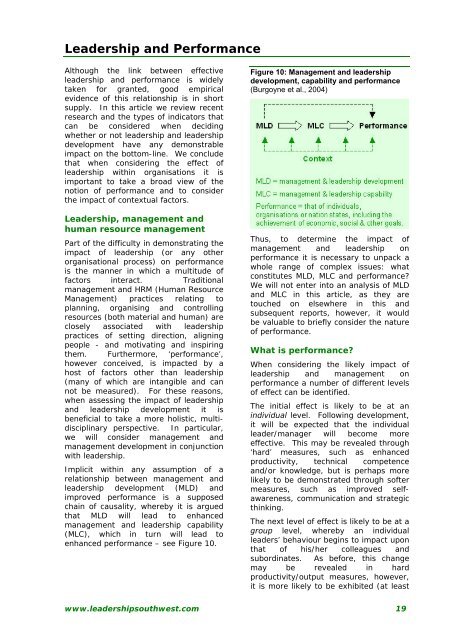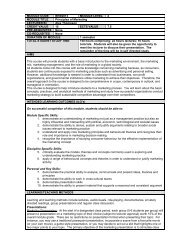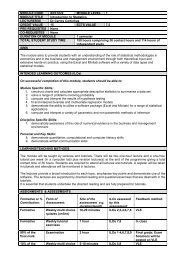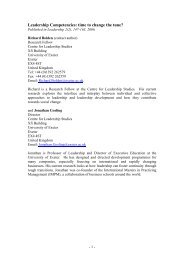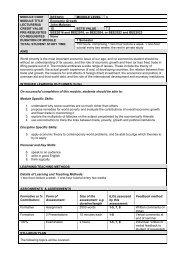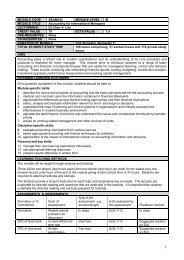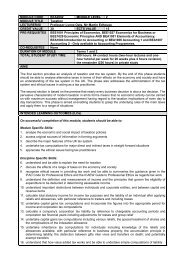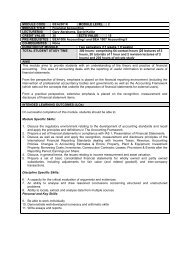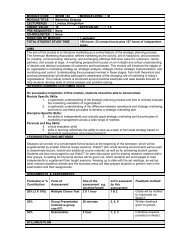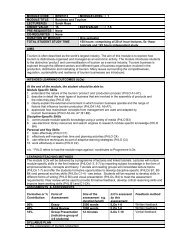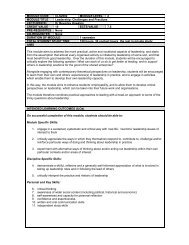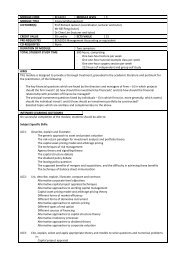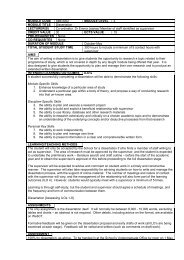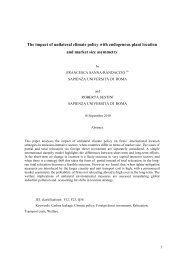What is Leadership? - The Business School - University of Exeter
What is Leadership? - The Business School - University of Exeter
What is Leadership? - The Business School - University of Exeter
You also want an ePaper? Increase the reach of your titles
YUMPU automatically turns print PDFs into web optimized ePapers that Google loves.
<strong>Leadership</strong> and Performance<br />
Although the link between effective<br />
leadership and performance <strong>is</strong> widely<br />
taken for granted, good empirical<br />
evidence <strong>of</strong> th<strong>is</strong> relationship <strong>is</strong> in short<br />
supply. In th<strong>is</strong> article we review recent<br />
research and the types <strong>of</strong> indicators that<br />
can be considered when deciding<br />
whether or not leadership and leadership<br />
development have any demonstrable<br />
impact on the bottom-line. We conclude<br />
that when considering the effect <strong>of</strong><br />
leadership within organ<strong>is</strong>ations it <strong>is</strong><br />
important to take a broad view <strong>of</strong> the<br />
notion <strong>of</strong> performance and to consider<br />
the impact <strong>of</strong> contextual factors.<br />
<strong>Leadership</strong>, management and<br />
human resource management<br />
Part <strong>of</strong> the difficulty in demonstrating the<br />
impact <strong>of</strong> leadership (or any other<br />
organ<strong>is</strong>ational process) on performance<br />
<strong>is</strong> the manner in which a multitude <strong>of</strong><br />
factors interact. Traditional<br />
management and HRM (Human Resource<br />
Management) practices relating to<br />
planning, organ<strong>is</strong>ing and controlling<br />
resources (both material and human) are<br />
closely associated with leadership<br />
practices <strong>of</strong> setting direction, aligning<br />
people - and motivating and inspiring<br />
them. Furthermore, ‘performance’,<br />
however conceived, <strong>is</strong> impacted by a<br />
host <strong>of</strong> factors other than leadership<br />
(many <strong>of</strong> which are intangible and can<br />
not be measured). For these reasons,<br />
when assessing the impact <strong>of</strong> leadership<br />
and leadership development it <strong>is</strong><br />
beneficial to take a more hol<strong>is</strong>tic, multid<strong>is</strong>ciplinary<br />
perspective. In particular,<br />
we will consider management and<br />
management development in conjunction<br />
with leadership.<br />
Implicit within any assumption <strong>of</strong> a<br />
relationship between management and<br />
leadership development (MLD) and<br />
improved performance <strong>is</strong> a supposed<br />
chain <strong>of</strong> causality, whereby it <strong>is</strong> argued<br />
that MLD will lead to enhanced<br />
management and leadership capability<br />
(MLC), which in turn will lead to<br />
enhanced performance – see Figure 10.<br />
Figure 10: Management and leadership<br />
development, capability and performance<br />
(Burgoyne et al., 2004)<br />
Thus, to determine the impact <strong>of</strong><br />
management and leadership on<br />
performance it <strong>is</strong> necessary to unpack a<br />
whole range <strong>of</strong> complex <strong>is</strong>sues: what<br />
constitutes MLD, MLC and performance?<br />
We will not enter into an analys<strong>is</strong> <strong>of</strong> MLD<br />
and MLC in th<strong>is</strong> article, as they are<br />
touched on elsewhere in th<strong>is</strong> and<br />
subsequent reports, however, it would<br />
be valuable to briefly consider the nature<br />
<strong>of</strong> performance.<br />
<strong>What</strong> <strong>is</strong> performance?<br />
When considering the likely impact <strong>of</strong><br />
leadership and management on<br />
performance a number <strong>of</strong> different levels<br />
<strong>of</strong> effect can be identified.<br />
<strong>The</strong> initial effect <strong>is</strong> likely to be at an<br />
individual level. Following development,<br />
it will be expected that the individual<br />
leader/manager will become more<br />
effective. Th<strong>is</strong> may be revealed through<br />
‘hard’ measures, such as enhanced<br />
productivity, technical competence<br />
and/or knowledge, but <strong>is</strong> perhaps more<br />
likely to be demonstrated through s<strong>of</strong>ter<br />
measures, such as improved selfawareness,<br />
communication and strategic<br />
thinking.<br />
<strong>The</strong> next level <strong>of</strong> effect <strong>is</strong> likely to be at a<br />
group level, whereby an individual<br />
leaders’ behaviour begins to impact upon<br />
that <strong>of</strong> h<strong>is</strong>/her colleagues and<br />
subordinates. As before, th<strong>is</strong> change<br />
may be revealed in hard<br />
productivity/output measures, however,<br />
it <strong>is</strong> more likely to be exhibited (at least<br />
www.leadershipsouthwest.com 19


